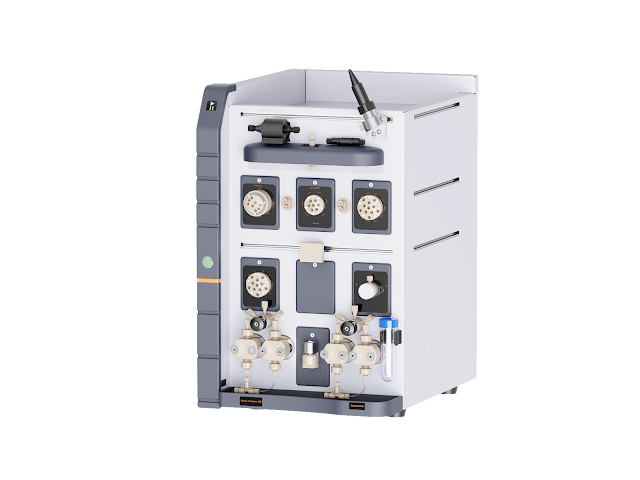Exploring the Efficiency of Fast Protein Liquid Chromatography in Protein Purification
In the realm of laboratory equipment, Fast Protein Liquid
Chromatography (FPLC) stands out as an indispensable tool for protein
purification. This chromatographic technique, a variant of Liquid
Chromatography, offers remarkable efficiency and precision in separating
complex mixtures of proteins. Chromatography techniques
have long been pivotal in various scientific disciplines, and FPLC has emerged
as a cornerstone in the field of biochemistry and molecular biology.
FPLC systems, such as those from AKTA, are designed to facilitate the purification of proteins with high resolution and reproducibility. The process involves passing a protein mixture through a chromatography column packed with a stationary phase. As the sample flows through the column, proteins interact differently with the stationary phase based on their physicochemical properties, leading to their separation. This process enables researchers to isolate target proteins from contaminants efficiently.
One of the significant advantages of FPLC is its versatility. It can be employed for a wide range of
applications, including protein purification, oligonucleotide synthesis, and peptide analysis. Whether researchers are isolating proteins for structural studies or purifying DNA fragments synthesized in a DNA Synthesizer, FPLC offers precise control over purification parameters, resulting in high purity
yields.
The FPLC chromatography process begins with sample loading onto the column, followed by the application of a buffer gradient or step-wise elution to elute proteins based on their affinity for the stationary phase. The eluted fractions are collected and analyzed, allowing researchers to monitor the purification process in real-time and make adjustments as necessary. This level of control ensures the reproducibility of results, a crucial aspect in scientific research.
Furthermore, FPLC systems are equipped with advanced software that enables automation and remote monitoring, streamlining the purification process and increasing throughput. Researchers can easily program purification protocols, monitor chromatograms, and analyze data, saving time and resources.
In conclusion, Fast Protein Liquid Chromatography (FPLC) has revolutionized protein purification, offering researchers a powerful tool for isolating proteins with high purity and yield. Its versatility, efficiency, and automation capabilities make it indispensable in various fields, from basic research to pharmaceutical development. As lab equipment continues to evolve, FPLC remains at the forefront, driving advancements in biochemistry and molecular biology.
.jpg)

Comments
Post a Comment